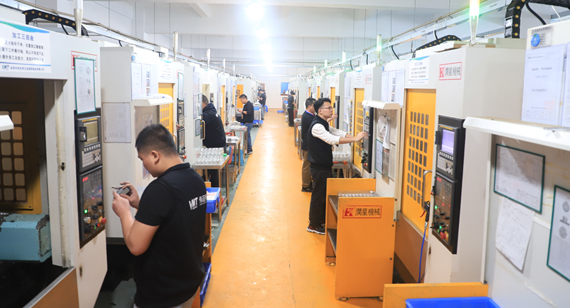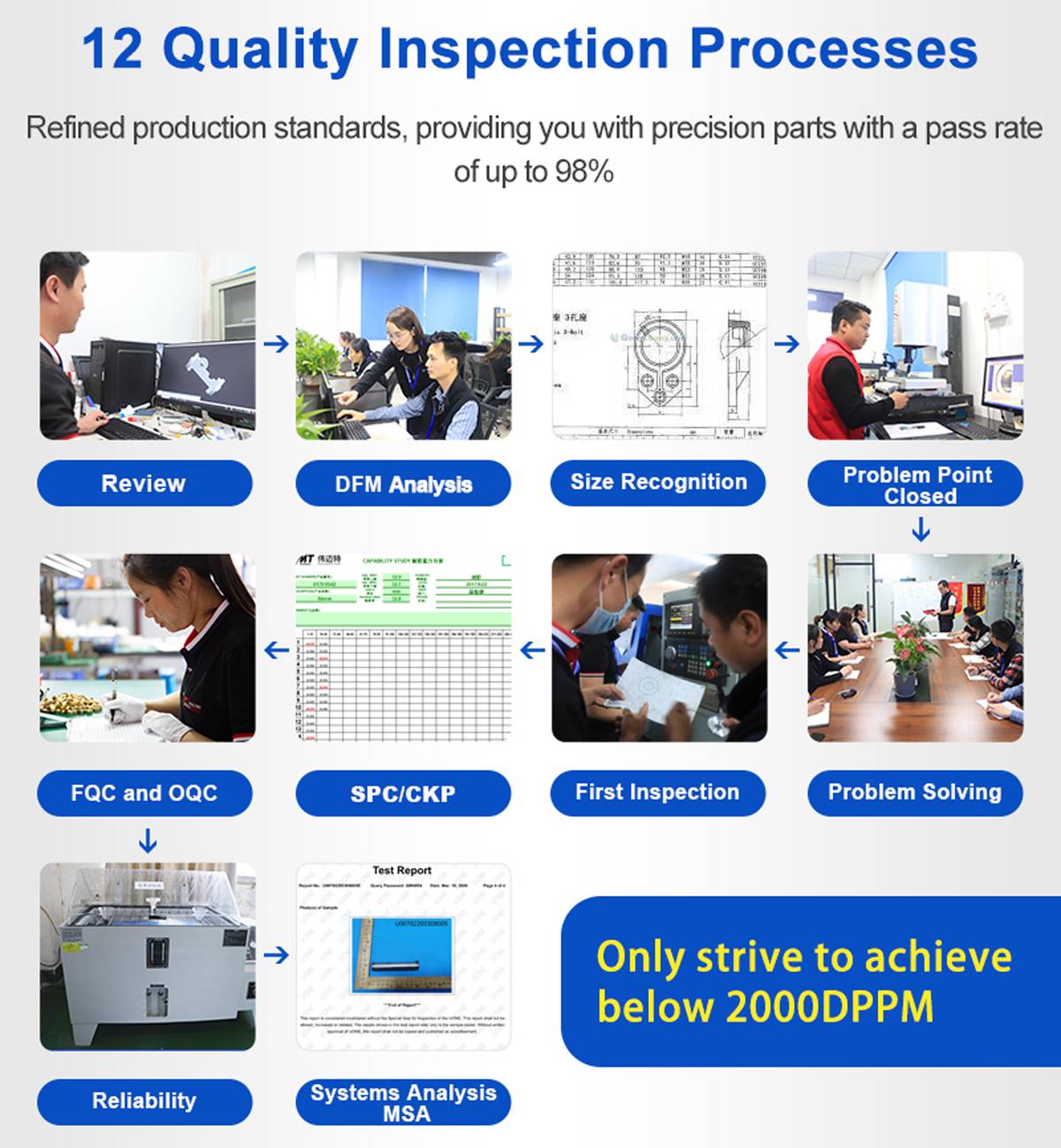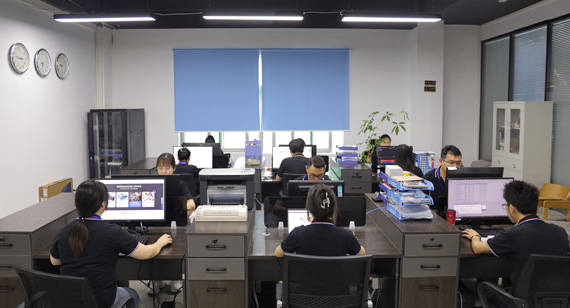15 years one-stop China custom CNC machining parts factory

Hey there I’m VMT Sam!
With 25 years of CNC machining experience we are committed to helping clients overcome 10000 complex part-processing challenges all to contribute to a better life through intelligent manufacturing. Contact us now
 156 |
Published by VMT at Mar 10 2024
156 |
Published by VMT at Mar 10 2024
In the field of CNC machined parts manufacturing, delayed lead times are a common and significant issue. It can result in customer dissatisfaction, contract breaches, and even impact the overall stability of the supply chain and the reputation of the business. Therefore, resolving delayed lead times in CNC machined parts is crucial for CNC machining factories and the entire supply chain. This article explores effective solutions for addressing delayed lead times in CNC machined parts from the perspectives of CNC machined parts, CNC machining factories, and custom CNC machining.
I. Analysis of Causes for Delayed Lead Times in CNC Machined Parts
The reasons for delayed lead times in CNC machined parts are diverse and may include insufficient raw material supply, improper production scheduling, equipment failures, technical challenges, and quality control issues. These issues may act individually or in combination, causing disruptions in the production schedule and ultimately leading to delayed lead times.

II. Role of CNC Machining Factories in Resolving Delayed Lead Times
CNC machining factories play a pivotal role in addressing delayed lead times in CNC machined parts. The factory needs to establish a comprehensive production management system to ensure smooth production processes. Specifically, the factory can take the following measures:
Optimize Production Schedules:
Develop reasonable production plans based on customer demands and the actual production capacity of the factory, ensuring that the production schedule is manageable. Monitor each stage of the production process closely to identify and address issues promptly.
Enhance Equipment Maintenance:
Regularly maintain and upkeep CNC machining equipment to ensure it remains in good condition, reducing the likelihood of production interruptions caused by equipment failures.
Upgrade Technological Proficiency:
Improve the factory's technological proficiency by introducing advanced technology and providing employee training. This helps address technical challenges during the production process.
Reinforce Quality Control:
Establish a robust quality management system to ensure CNC machined parts meet customer requirements, minimizing delays caused by quality issues.

III. Strategies for Lead Time Management in Custom CNC Machining
Custom CNC machining, involving personalized customer requirements, imposes higher demands on lead time management. In custom CNC machining, the factory can adopt the following strategies to ensure accurate lead times:
Thorough Customer Communication:
Engage in comprehensive communication with customers upon receiving custom orders to clearly understand customer needs and expectations, ensuring a mutual agreement on lead times.

Develop Specialized Production Plans:
Formulate specialized production plans for custom CNC machining orders, ensuring tight coordination at every stage of the production process to minimize time wastage.
Adaptability to Changes:
Due to potential changes in design or material substitutions in custom CNC machining orders, the factory needs to maintain flexibility, adjusting production plans promptly to ensure production progress is unaffected.
IV. Supply Chain Collaboration for Addressing Delayed Lead Times
Addressing delayed lead times in CNC machined parts requires not only efforts from CNC machining factories but also collaborative actions across the entire supply chain. Specific measures include:
Strengthen Supplier Management:
Establish stable cooperation with suppliers to ensure a steady supply of raw materials with reliable quality. Conduct thorough assessments of supplier production capabilities and delivery times to avoid delays caused by supplier issues.
Establish Information Sharing Mechanisms:
Create information-sharing platforms or supply chain management systems to facilitate real-time information sharing and collaboration across the supply chain. This aids in promptly identifying and resolving potential issues, ensuring the accuracy of production schedules and lead times.
Optimize Logistics Distribution:
Select reliable logistics partners to ensure CNC machined parts are delivered to customers on time. Simultaneously, minimize time delays in logistics by implementing rational logistics planning and distribution strategies.

V. Conclusion and Outlook
Delayed lead times in CNC machined parts pose a complex and severe challenge, requiring joint efforts from CNC machining factories and the entire supply chain for resolution. Through measures such as optimizing production schedules, enhancing equipment maintenance, upgrading technological proficiency, reinforcing quality control, and collaborative efforts within the supply chain, we can effectively address delayed lead times in CNC machined parts. In the future, with ongoing technological advancements and continuous optimization of supply chain management, we have reason to believe that solutions for delayed lead times in CNC machined parts will improve, providing robust support for the healthy development of the entire CNC machining industry.
Ready To Start Your Next Project?
Get Instant Quote

Request a Free Quote
Send us a message if you have any questions or request a quote. We will get back to you ASAP!